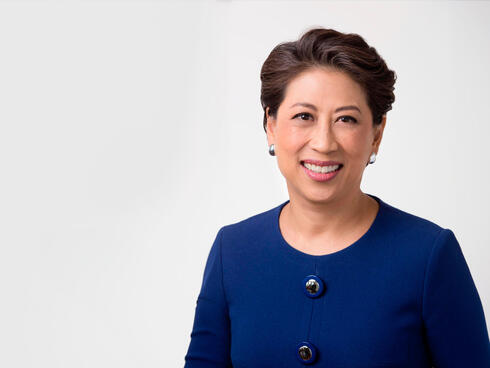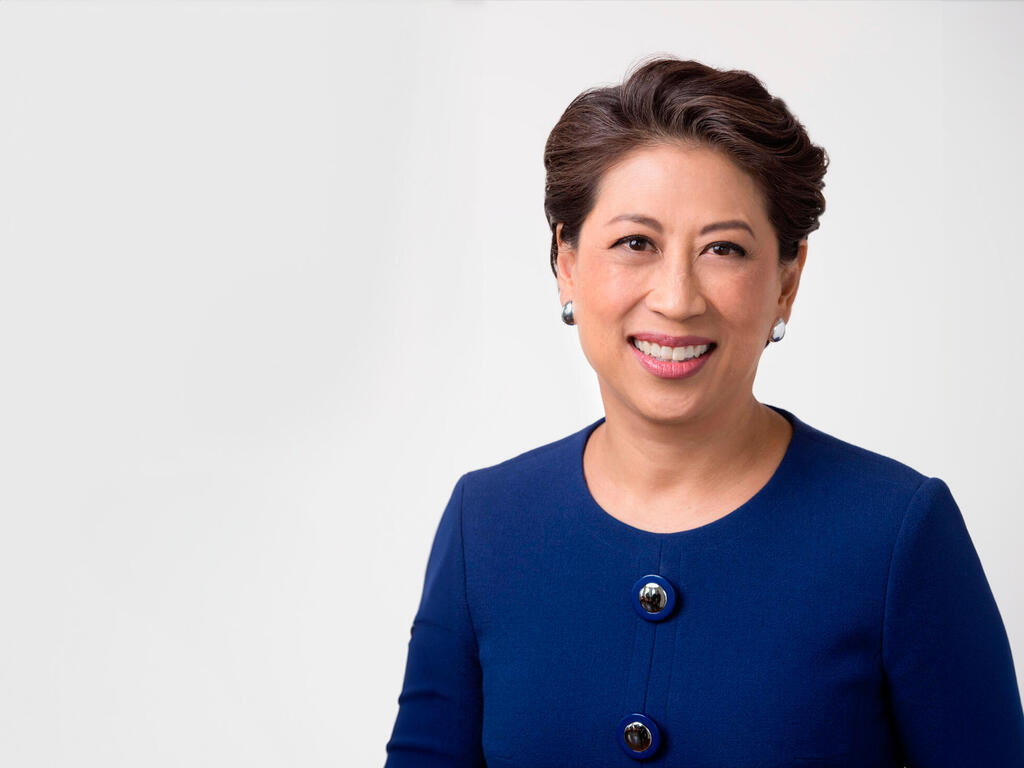
State Street Global Advisors CEO: "Israel's unique capabilities make it a strategic focus for us"
Yie-Hsin Hung, President and Chief Executive Officer of State Street Global Advisors, which manages $4.7 trillion, believes that market volatility will continue after Trump's inauguration and is not reducing exposure to Israeli market.
The election of Donald Trump as U.S. President has been received positively by global capital markets, which recorded sharp price increases. However, the government bond market showed a negative trend due to fears that his policies could lead to inflation and deficits, potentially affecting anticipated interest rate cuts.
Yie-Hsin Hung, President and Chief Executive Officer of State Street Global Advisors, which oversees $4.7 trillion in assets across 58 countries, believes the positive trend is justified and remains optimistic about the stock market despite its recent gains. "The U.S. elections ended with a decisive victory for former President Trump, which reassured investors who had feared prolonged uncertainty. Bond yields initially rose over concerns about inflationary impacts from Trump's policies but have since stabilized," she told Calcalist. Despite current valuations, Hung sees room for further growth in the stock market. “We maintain a positive outlook. Since early 2024, the economic environment has proven more resilient than expected, with solid growth despite inflation moderating more slowly than anticipated. Interest rate cuts and continued economic resilience in 2025 are likely to provide tailwinds for the stock market. Additionally, Trump's proposed tax cuts are expected to positively impact corporate profitability."
When asked whether Trump’s proposed tariff hikes might weigh on the bond market and overall capital markets, Hung responded: "In my view, government bonds in most developed countries will offer good returns next year, though the rest of the debt market appears fully priced at current spreads. If inflation resurfaces due to Trump's policies, and interest rate expectations shift from cuts to hikes, it could alter the bond market trajectory—especially in the latter half of 2025. However, it's too early to draw conclusions without seeing the policies he implements. What’s certain is that market volatility will persist after the new president is sworn in. Events such as the expiration of the 2016 tax cuts at the end of 2025 and changes in customs or immigration policy could further trigger volatility."
State Street is a major player in the passive investment sector and owns the SPDR ETF, one of the largest ETFs tracking the S&P 500 index. Clal Insurance recently announced a collaboration with State Street, launching two new joint investment tracks under Clal's savings policies: a general track combining bonds and stocks, and an equity-focused track. The investments will be managed by State Street, covering a diverse range of global securities. Clal noted that institutional investors already manage NIS 50 billion in State Street products, and this partnership extends access to private investors.
While foreign investors have reduced exposure to the Israeli market since the onset of the war, Hung expressed confidence in Israel’s economic resilience. "Israel has always been a beacon of innovation, with a sophisticated economy driven by high-tech. Its unique capabilities make it a strategic focus for us. Despite the challenging period, Israel is well-positioned for a strong recovery. We are maintaining and even expanding our activities here through our partnership with Clal. The positive impact of the Abraham Accords and other political agreements also reinforces our confidence in Israel's potential," she said.
Hung remains optimistic about the global stock market in 2025: “We plan to remain modestly overexposed to equities."
Hung highlighted concentration risks in the U.S. stock market. "The top 10 companies in the S&P 500 now account for 35% of its value, and the U.S. represents 66% of the MSCI ACWI index, an all-time high. We recommend increasing exposure to smaller companies and emerging markets, which offer advantages during this period.
"Another issue is the high correlation between stocks and bonds, which limits portfolio resilience to market shocks. To enhance resilience, we suggest considering alternatives like gold, commodities, and digital assets. These can help manage volatility and inflation while generating additional returns. Investments in non-tradable products such as real estate and credit also present opportunities with lower volatility and attractive returns."
Israeli investors have increasingly directed funds to the S&P 500 index, which has risen over 25% this year alone. This trend could pose challenges for Clal in convincing savers to switch to actively managed investment tracks abroad.
Moshe Ernst, Deputy CEO at Clal Insurance, emphasized the importance of diversification: "Since January 2022, the S&P 500 has delivered a 60% return. While this is phenomenal, such dramatic gains often precede significant corrections. The index is trading at high earnings multiples, with an expected annual return of just 3%-4%."
Ernst also pointed out the risks associated with the index’s concentration. "The seven largest companies have gained 156% since early 2023, while the other 493 companies achieved an average return of only 37%. Additionally, the index focuses exclusively on American stocks, limiting geographic diversification. Investors must remain cautious and selective."
The management fees for Clal and State Street’s joint investment tracks will range from 1.3%-1.5%, higher than the average of 0.8% for similar products. Ernst acknowledged the higher fees but noted, "Unlike other tracks, there will be no duplication of fees, as State Street will absorb external management costs. In practice, the gap isn’t as significant as it appears."















